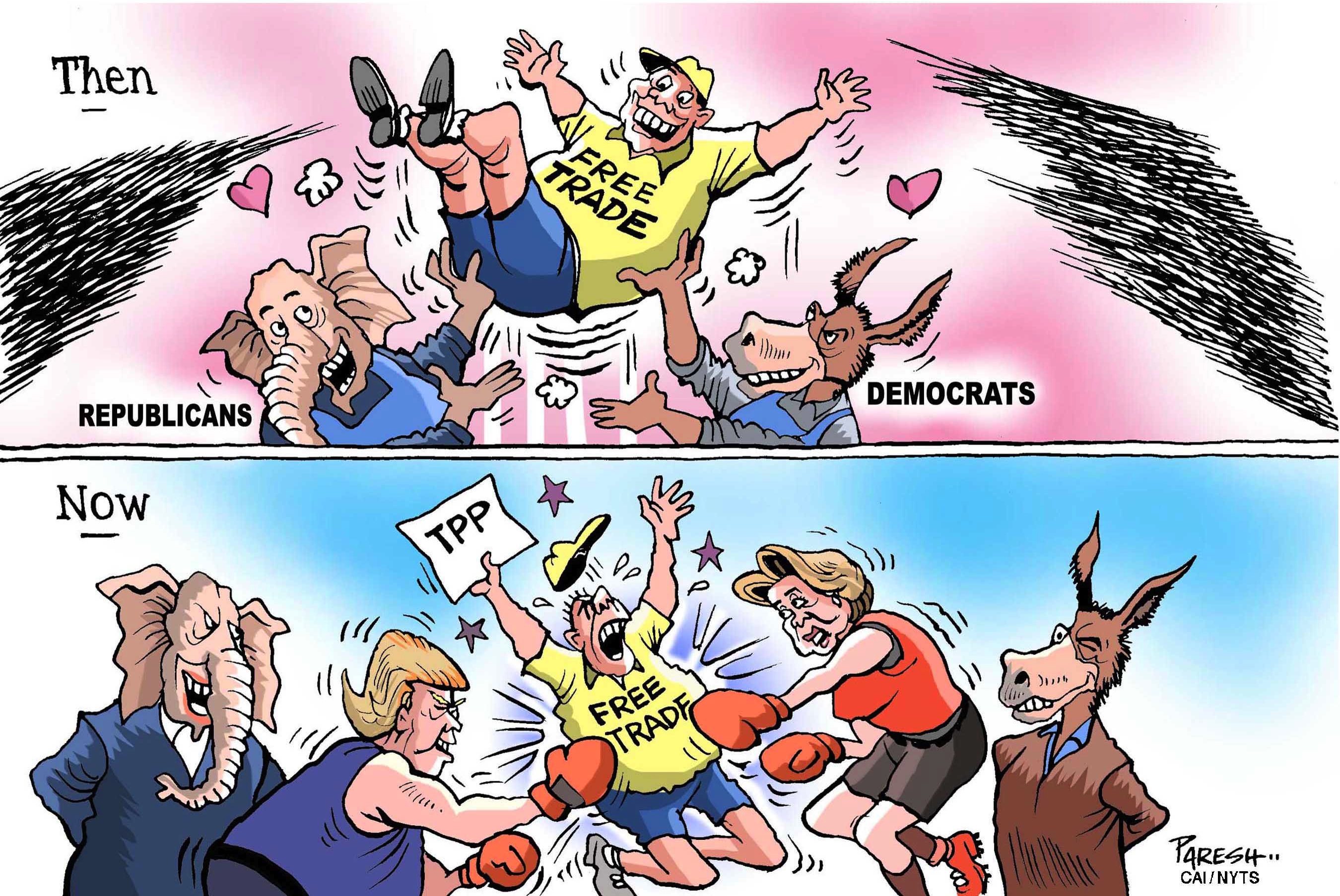The Trans-Pacific Partnership is not dead. Not yet, anyway. The Obama administration, like its counterpart in Tokyo, is determined to press ahead with ratification by the end of the year, specifically in the "lame duck" session between the November elections and the inauguration next January. It may be the only chance the United States has for long time.
Both presidential candidates have repeatedly voiced their opposition to the TPP over domestic concerns about its impact on jobs and the economy. That's an important discussion, but the next president will want a formal framework to govern commerce in Asia, the world's fastest growing market, and for now the TPP is still the most likely framework. Certainly, the next president will probably prefer to have the TPP in hand, rather than floating in the air, on their first trip to Asia.
In that case, the candidates should hope (probably silently) that the TPP is ratified before they take office. Two things need to come first: the Obama administration needs to reach agreements with relevant Republican congressional leaders on their objections to the agreement and then persuade enough Democrats to vote in favor.



















With your current subscription plan you can comment on stories. However, before writing your first comment, please create a display name in the Profile section of your subscriber account page.